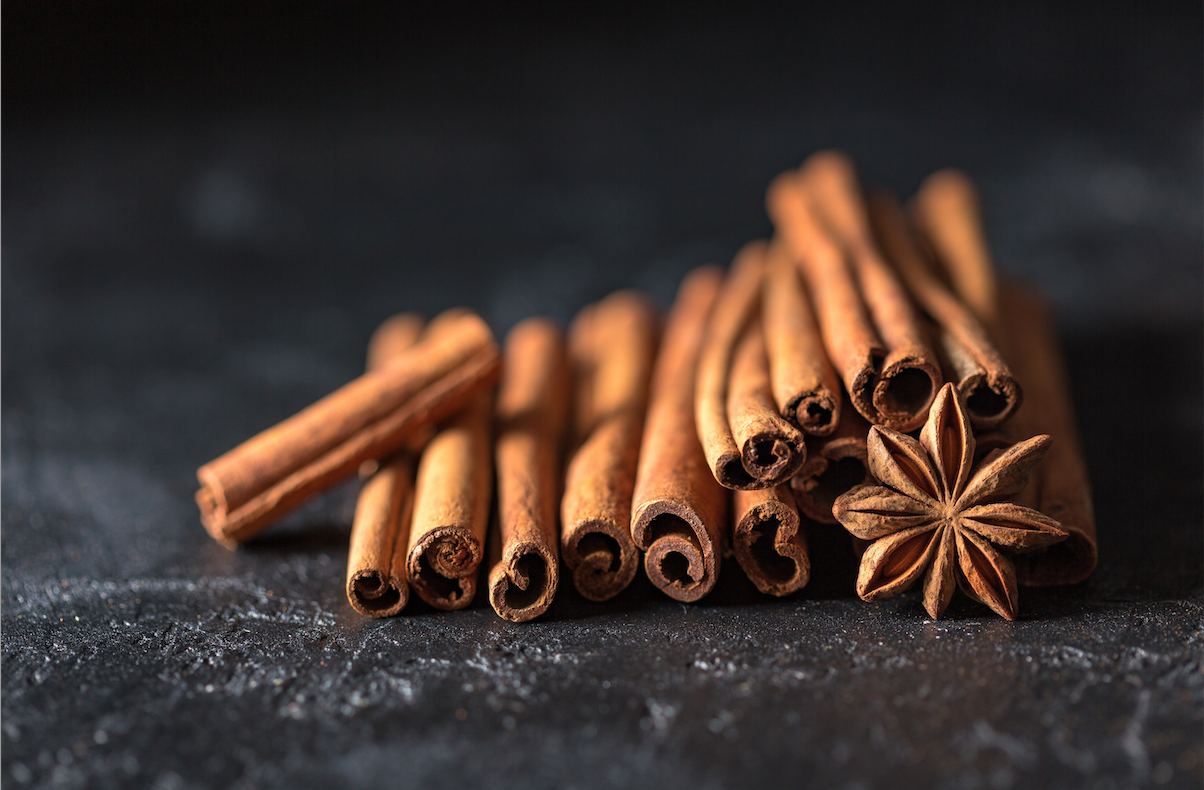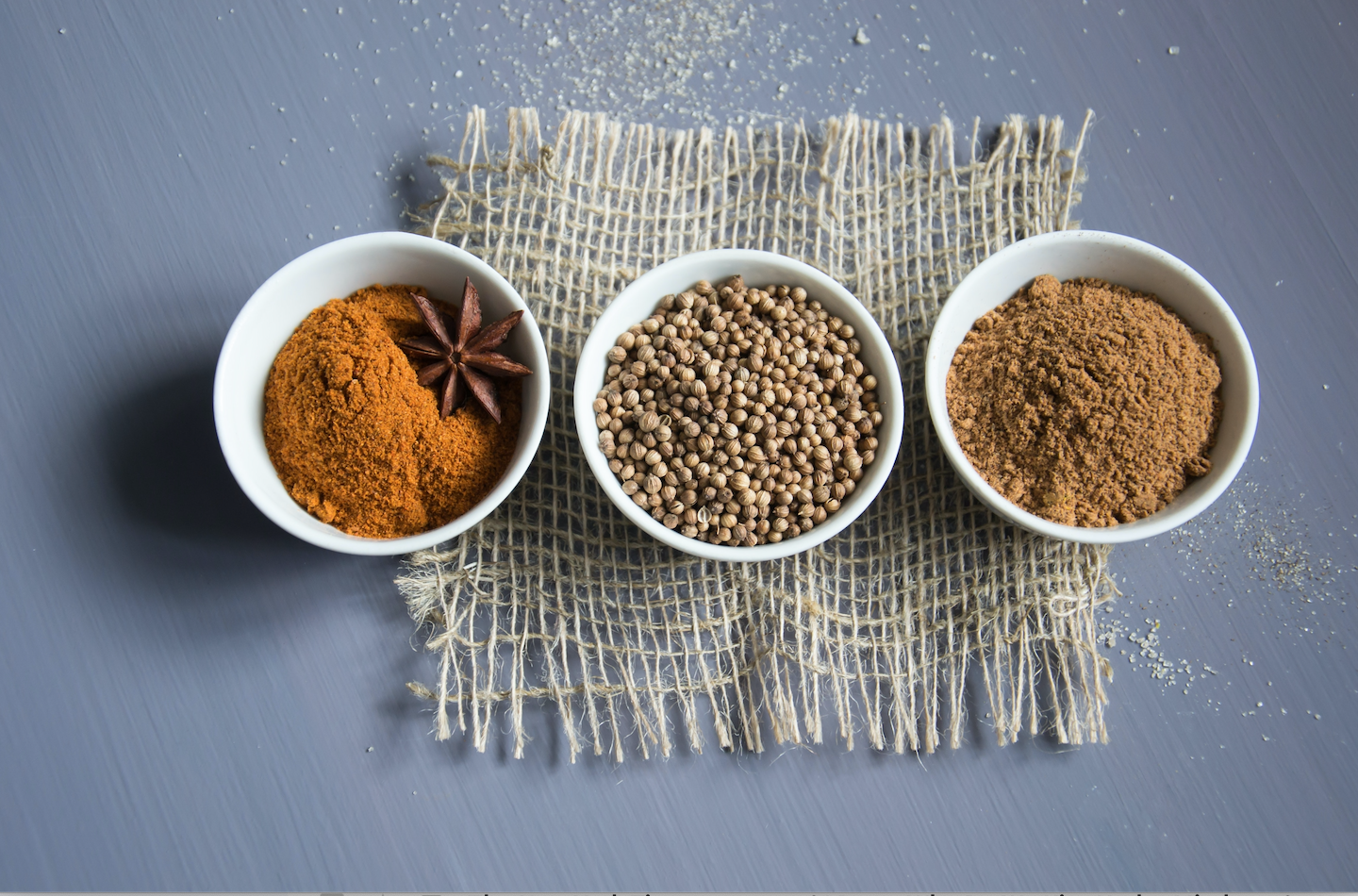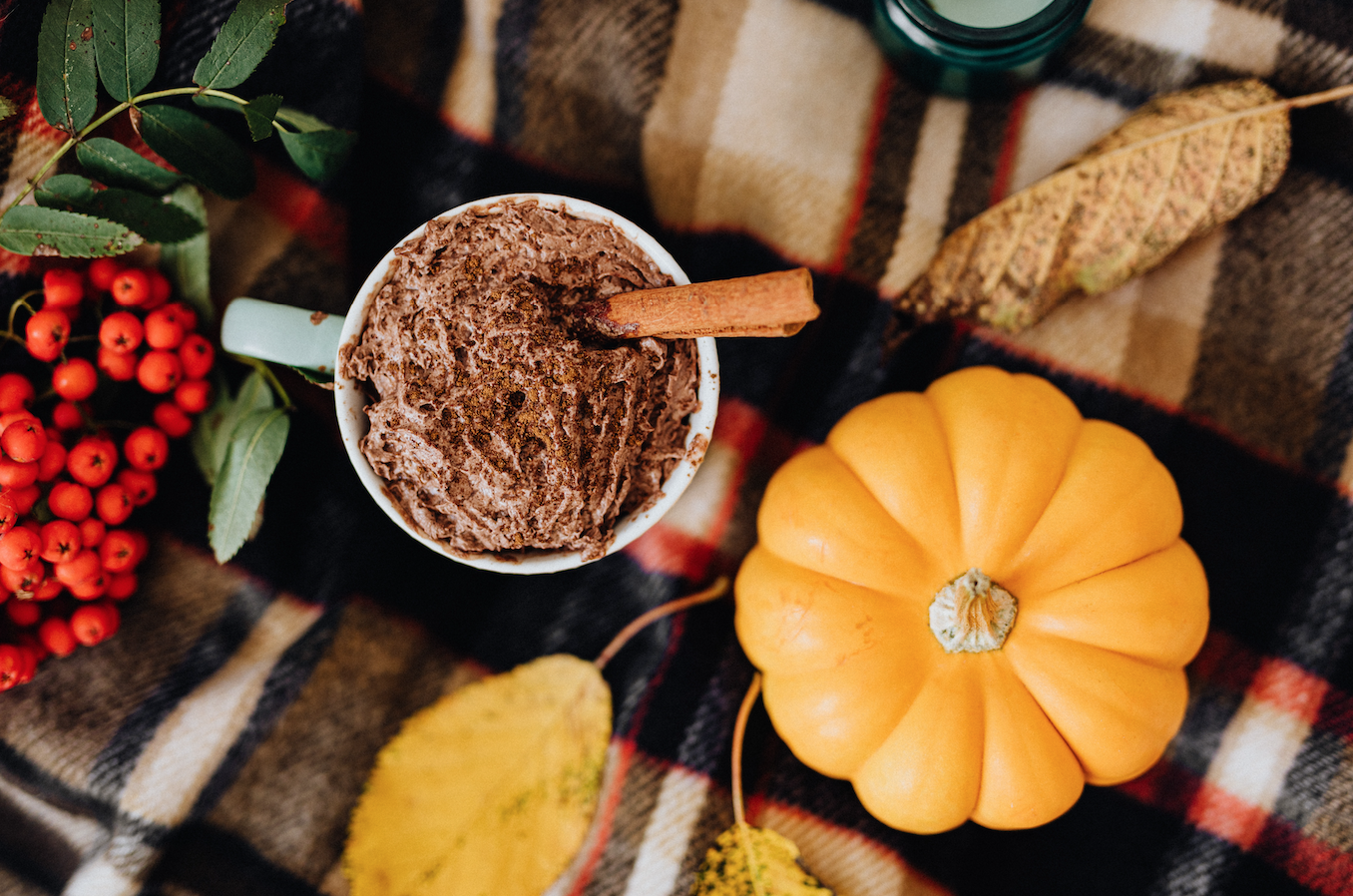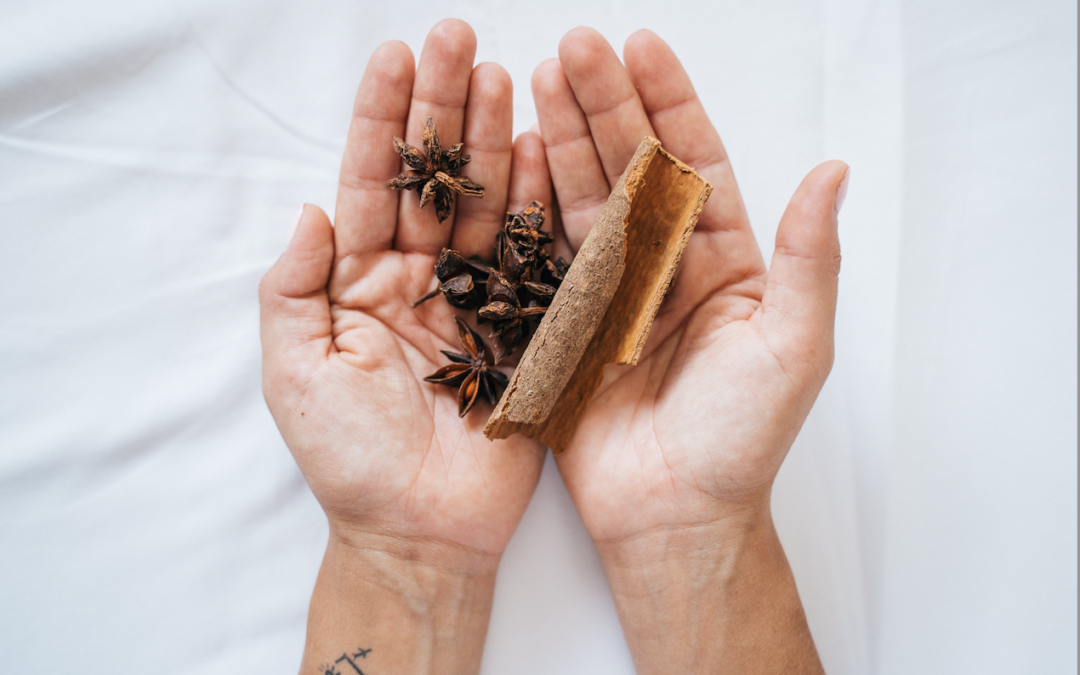
Hmm…cinnamon. The mere waft evokes feelings of warmth, and happiness. Though it is a mainstay in the pantry all year long, cinnamon is one of the spices inherently linked with Christmas. Whether sprinkled on cookies, slathered on freshly-baked buns, or infused in savory dishes, cinnamon is one of the most popular and recognizable spices in the world. But did you know that beyond taste and aroma, cinnamon has a lot to offer in the health department too?
If you’re looking for more reasons to sprinkle cinnamon on everything this Christmas, you’re in luck. Here are 5 health benefits of cinnamon, along with some side effects that you need to be aware of.

What is cinnamon?
Cinnamon comes from the branches of the trees of the Cinnamonum family, native to the Caribbean, South America, and Southeast Asia. Cinnamon is harvested from the inner bark of the branches, and then dried to make cinnamon sticks. They have a natural brown color, and a curled appearance due to the circular shape of a tree trunk. In the market, cinnamon is either sold as is or in bark form, powdered form (the type we usually have in our pantries), or as essential oils, or supplements.
What many people don’t know is that there are two types of cinnamon. The common type is Cassia cinnamon. Produced in China, Indonesia, and Vietnam, Cassia cinnamon is more affordable, and is distinguished by a stronger flavor and odor, making it an ideal choice for heavier baked goods. When you grab cinnamon powder in the grocery, you’re probably getting the Cassia type, also called the “regular cinnamon.” But note that even if you look at the product description closely, it won’t usually identify itself as Cassia cinnamon.
Adversely, the second type, Ceylon cinnamon, will identify itself as such on the labels. Grown in Sri Lanka, the Ceylon cinnamon is hard to find, and much more expensive. Ceylon has a lighter sweeter flavor than Cassia, and is dubbed the “true cinnamon.” If you have money to splurge, get the Ceylon cinnamon. Not because it’s rare, but because it only contains a trace amount of coumarin, a chemical compound that could cause liver damage in high doses.

Cassia cinnamon, on the other hand, contains 7-18 milligrams of coumarin per teaspoon of cinnamon. In Europe, the allowed daily intake for coumarin is 0.1 mg per kg of body weight. The U.S. Food and Drug Administration’s recommended limit only is 6 grams of cinnamon per day.
In many cases, just 1 to 2 teaspoons could bring someone over the daily limit (quoted from this article on Healthline). Thus, people with pre-existing liver diseases should watch out their cinnamon intake.
This also means that if you’re using Cassia cinnamon, use it sparingly. If you regularly consume cinnamon or take it as a supplement, make sure to use Ceylon cinnamon instead.
Now that you know about coumarin, should you stop using cinnamon altogether? Not really. As long you are aware of the type you’re using, and don’t exceed the limits, a dash of cinnamon has plenty to offer, including sprinkles of good health.
What are cinnamon’s health benefits?
Helps lower blood sugar control and fight diabetes
Among all the know health benefits of cinnamon, this is the one that shows most promise, according to CNN.
In a study, 60 people with Type 2 diabetes consumed up to 6 grams of cinnamon per day between 40 days to 4 months. By the end of the experiment, the researchers discovered that the participants have lowered their blood sugar levels, and improved their LDL or bad cholesterol, triglycerides and total cholesterol.
By imitating the effects of insulin and increasing the movement of sugar from the bloodstream into cells, cinnamon may help people with diabetes lower their blood sugar levels. So, go ahead, experts say, sprinkle some between half a teaspoon to 3 teaspoons on your cereal, yogurt, or coffee.

Rich in antioxidants
In ancient times, the Chinese herbalists and Ayuverdic medicine practitioners used cinnamon to cure a variety of ailments, such as relieving digestive, respiratory, and gynecological ailments. It was also used to treat colds and sore throats. Of course, that time, they didn’t hold physical evidence of its effectivity. It’s only today that we have that luxury.
Cinnamaldehyde, the oily part of the cinnamon that lends its distinct spicy aroma and taste, is rich in antioxidants, including polyphenols.
Antioxidants play a tremendous role in human health. Because it fights or neutralizes free radicals in the body, it helps protect us from heart disease, dementia, and cancer.
Antiviral, antifungal and anti-bacterial
That said, cinnamaldehyde contains anti-viral, anti-bacterial, and anti-fungal properties. It can block bacteria like salmonella, as well as respiratory infections caused by fungi.
In fact, during ancient times, cinnamon was used to prevent spoilage of food and even used in the mummification and embalming of bodies. It’s not the nicest analogy, but you get the drift. The ancients touted cinnamon for its antimicrobial properties and they were right on the money.

Helps relieve arthritis and other kinds of chronic pain
If you suffer from any type of inflammation, here’s another reason to dust some cinnamon into your life. Cinnamon is believed to reduce swelling in the body, and enhance blood circulation, relieving pain and soreness on the bones and joints. By addressing inflammation, cinnamon can help treat arthritis, headache, and other kinds of pain.
Helps soothe the stomach
This benefit is an off-shoot of its anti-bacterial properties. When you have a digestive issue such as gas, bloating, or indigestion, consider consuming a cup of cinnamon tea.
In this study, researchers from RMIT University found that adding cinnamon to food or drink can help decrease stomach acid. Further, the researchers ventured to conclude that cinnamon can cool one’s body up to two degrees.
Cooking with cinnamon
Type cinnamon and food on Pinterest (and Google for that matter!), and you’re bound to see thousands of inviting images, all manner of dishes livened up by just a few sprinkles of cinnamon.
Beyond hot chocolate, lattes, and sticky buns, here are some of the delicious ways you can use cinnamon for the holidays.
- Make donuts dusted with cinnamon powder and sugar. Great for dunking in hot chocolate.
- Add a dash of cinnamon on your breakfast smoothie bowl.
- Need a star dish for your Christmas dinner? How about cinnamon chicken and sweet potatoes?
- Bake a batch of homemade cinnamon cookies, and enlist your kids help with decorating. Use themed cookie molds like stars and Christmas trees.
- For drinks, a glass of Cinnamon White Russian sounds heavenly! (But drink in moderation to avoid the dreaded hangover and hangxiety.)
- When the weather turns chilly, nothing beats a good ‘ole hot toddy, the perfect winter drink spiced with cinnamon sticks.
Tags
References:
https://edition.cnn.com/2017/08/24/health/cinnamon-health-benefits/index.html
https://www.medicalnewstoday.com/articles/266069
https://badgut.org/information-centre/health-nutrition/cinnamon/
https://www.realsimple.com/health/nutrition-diet/healthy-eating/cinnamon-benefits
https://www.healthline.com/nutrition/cinnamon-and-diabetes#postprandial-blood-sugar



0 Comments